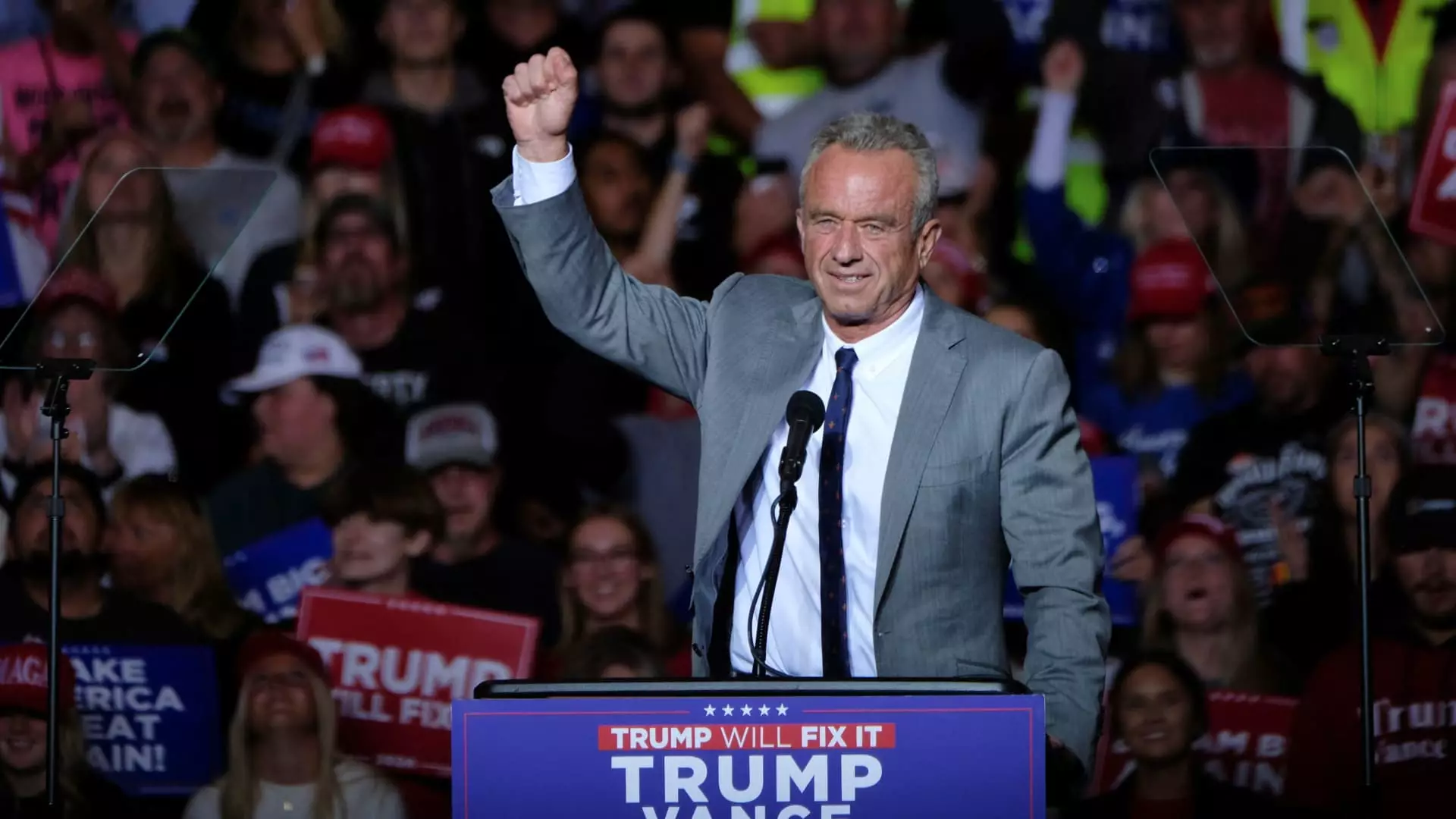The recent surge in Henry Schein’s stock prices is indicative of the dynamic nature of investor sentiment in response to political news. On a day marked by fluctuating market trends, shares of the dental care supplier saw an uptick of nearly 5%. This rally was primarily driven by the speculation regarding Robert F. Kennedy Jr.’s potential role as the Secretary of Health and Human Services under President-elect Donald Trump. Investors eagerly anticipated the implications of Kennedy’s views on fluoride, which could result in significant shifts in public health policy and consumer behavior.
In Kennedy’s campaign, he boldly claimed that a Trump administration would advocate for the removal of fluoride from public water systems. This declaration prompted major stakeholders in manufacturing dental hygiene products to reflect on how such a policy alteration might influence market dynamics. The resonance of his remarks suggests a calculated maneuver by investors to position themselves favorably ahead of anticipated changes in healthcare regulations, particularly in the realm of dental care.
Fluoride’s efficacy in promoting dental health has been widely recognized for decades. It is credited with significantly reducing cavity rates across populations. However, the mineral has become a controversial topic, with various communities engaged in heated debates about its safety and necessity. Some locales have already taken steps to cease fluoridation programs, and the possibility of a nationwide policy shift under Kennedy raises questions about the future of such initiatives.
Kennedy’s nomination suggests a broader trend that signals a potential reduction or elimination of fluoride in public water. According to analysts at Gordon Haskett, this could lead to an uptick in dental visits as individuals seek alternative ways to combat tooth decay. The potential for increased dental problems creates a direct line of benefit for companies like Henry Schein, which are well-positioned to cater to a higher demand for dental services and products.
The implications of Kennedy’s nomination extend beyond just the dental care sector. Following the announcement of his selection, there were notable declines in various health-related stocks. Companies within pharmaceuticals, contract research, and health insurance faced considerable pressure due to Kennedy’s controversial stance on vaccines and public health. This widespread sell-off highlights the intricate connections within the healthcare industry and how leadership changes can initiate far-reaching effects across different segments.
Investors reacted with concern to Kennedy’s selective viewpoints, particularly his skepticism towards vaccinations and scrutiny of processed food industries. The interconnectedness of public health policies and these sectors demonstrates that a seemingly isolated change in one area can produce cascading effects throughout the marketplace. Such reactions serve as a reminder of the sensitive nature of investor sentiment and the ripple effects initiated by political discourse.
Looking ahead to the policies that might emerge from Kennedy’s leadership, it is crucial to note that any regulatory alterations are unlikely to materialize immediately. Changes in public health regulations typically require extensive deliberation and implementation periods, thus making it essential for investors to remain vigilant and prepared for fluctuating market conditions.
Furthermore, the oversight of drinking water quality typically falls under the jurisdiction of the Environmental Protection Agency (EPA), complicating the narrative surrounding the proposed changes. While the Health and Human Services Department will certainly influence health policy, the pathway to modifying water fluoridation would require significant cooperation and advocacy across various governmental entities.
Robert F. Kennedy Jr.’s nomination poses both opportunities and uncertainties for the dental care market. The speculation surrounding fluoride policy shifts reflects an evolving landscape where investor optimism can significantly impact stock values. While Henry Schein and similar companies may see short-term gains based on anticipated increased demand, the broader healthcare and regulatory environment will undoubtedly evolve in complex and unpredictable ways. Understanding these dynamics will be essential for stakeholders navigating this promising yet tumultuous territory in dental health and beyond.

